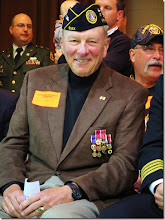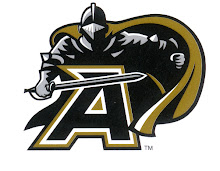

Hi, guys! Next Monday night marks the 20th anniversary of the fall of the Berlin Wall,
one of the highlights of my life.
You've read the poem I wrote about that wall as a second lieutenant in 1967, the same poem that was read in 1994 as the Berlin Brigade colors were cased by President Clinton and the Brigade deactivated. But where were we on 9 November 1989?
We were in Heidelberg where my assignment was Chief of Doctrine, Concepts and Analysis Division, a cover name for what we really did which was think tank work for the four star, Commander in Chief, US Army Europe (CINCUSAREUR).
In the fall of 1988, the Deputy CINC, Lieutenant General George Stotser, had received a surprise invitation from the Hungarian Army Chief of Staff to attend a meeting of the Warsaw Pact military chiefs to be held in Budapest. This was a big deal at the time - a NATO general asked to sit in on the Warsaw Pact meeting, presumably as a "confidence building measure" between the two opposing sets of forces in Central Europe.
LTG Stotser called for me and a few of my fellow officers to meet with him in order to plan the types of questions he might expect and some of the things we thought he should be looking for in the meeting. Armed with our ideas, he went to Budapest and returned with amazing news!
Seated to the left of the Hungarian general, with the Soviet Chief of Staff on the Hungarian's right, LTG Stotser found himself continually being nudged and whispered to by his host. Speaking near-perfect English, the Hungarian general kept telling General Stotser that they had to get the Soviets out of their country before their economy was completely destroyed by the "stupid Russians."
The fault lines between Warsaw Pact "allies" was big news, both to us and to Washington, where it was quickly reported.
On 2 May 1989, the reform-minded Hungarian Communists began, without notice, to dismantle their portion of the Iron Curtain, the fortified border with Austria. Less than two months later, more than 25,000 East Germans had decided to "vacation" in Hungary and somehow ended up in Austria. The crack in Iron Curtain quickly became a flood. USAREUR was asked by the West German government to assist in the housing and feeding of all the Eastern refugees arriving in Bavaria. The cries for all of the fences and the Berlin Wall to come down became louder.
The Czech government soon followed suit, opening its border with Austria. In the 24 hours prior to the 9 November events in Berlin, more than 20,000 East Germans had escaped across the Czech-Austrian border. On the night of 9 November, huge crowds pressed against all the checkpoints in Berlin after hearing that the East Germans were going to open the border. Confused and without official direction, the East German Border Guards (VOPO's) decided that they couldn't shoot everyone, so they opened the gates and the Wall was no more. The evening sky in Heidelberg and throughout West Germany was ablaze with fireworks usually saved for New Years Eve.
Several weeks later, the officers of USAREUR Headquarters met for a professional development session at the local Officers Club. After the CINC reviewed what our role had been in the dramatic events of the past year, he asked me to come forward to speak. He had read my poem of 1967 and asked that I read it. Following that, he asked for my poetic thoughts as to what had transpired in just the last few weeks.
Here is what I read:
A Soldier Remembers
by COL Ken Carlson
On Friedrichstrasse in '61
I watched that awful sight.
I overlooked my tank main gun
Throughout that dreadful night.
I watched them string the strands of wire;
I saw the shattered dreams.
They forced me to withhold my fire;
I still recall the screams.
I watched the Wall be built by blocks;
I watched the families part.
I saw the tears, I felt the shocks,
It simply broke my heart.
Patrolled the Wall with JFK
I was there in '63.
A Berliner he became that day
And joined the likes of me.
For I was there both day and night
No hours of nine to five;
I beamed the Wall with Freedom's Light
To keep their hopes alive.
Along the border, miles away,
My buddies did the same.
They kept their posts, through "come what may,"
While blessing Freedom's name.
The politicians came and went
As did the network news;
But cookies that my Mom had sent
Would help us cure the blues.
My friends and I have kept the trust
For twenty eight long years.
Through cold and rain, we knew we must -
For we still saw the tears.
And so today, with Wall now split
And barriers torn wide,
Forgive us if we smile a bit
And show our soldier's pride.
For we've been here at your request
Each Fred and Sue and Bob.
You sent your Army, sent your best -
We're proud we did the job.
Not a dry eye in the house, for all in the audience had lived through much of what was expressed in the poem. And all knew - Freedom isn't free.




10 comments:
You know, your children are incredibly blessed to have you! I enjoy your insight so much. Even though you are posting less frequently, this is truly a case of Quality over Quantity. Thank you, sir!
Good job-- as both soldier and poet! I can only imagine how amazing it must have been to be in Germany for the beginning and the end.
I was in Paris that year and vividly remember an East Berliner who crossed the Iron Curtain for the first time in his life and made his way to Paris.
He was with friends and me for three days. He never said a word, just looked and looked and looked.
We've seen, experienced first hand and lived through some amazing historical events, the wall coming down was certainly in the top two. I'm not sure our grand kids will ever really understand it but your post is a good start to educating them and others.
Thank you that was a great post and an even greater poem this go round.
So glad to read your thoughts today. I tried to ask my Dad what the wall coming down meant to him, but he didn't say much. Thank you for sharing your insight as I am sure your fellow soldiers shared many of the same emotions.
My daughter Sue gave me the link to your blog and reading about your memories of the Berlin Wall coming down sure has brought back a lot of memories about our time in Heidelberg, some of them seemed pretty hard times when they were happening. Thanks for taking the time to share.
Lois Ann Garlitz
Ken,
A thank you never seems like enough.
It is hard to imagine what this world would be like without you and your kind that have been placed in harms way to enhance and protect lives of people that will never get to thank you.
God Bless you and everyone you love.
Mike Lee Jack Sam and Charlie
I confess I am such a late comer to your blog. How could I have missed this? In trying to make up for lost time, I am going back through every posting. I love the Army jargon (was a military spouse once as you know), as a nurse I love the explicit descriptions and photos of your big ordeal, the George Winston piano makes tears come unbidden (I am a big fan), the wonderful, sassy humor about
your ordeal lifts my spirits... How could we have guessed way back in time in Heidelberg that your relationship with my daughter Sue and your family would have stood the test of time and seems to be stronger than ever. May God continue to bless you all.
Dear Ken,
On Nov 9, 2008, my daughter Lynne asked me to tell my grandchildren my remembrance of the exciting events that transpired that evening of Nov 9, 1989. My family, which included their mother who was 14 at the time, was stationed in Heidelberg. That evening I gathered my twelve-year old grandson and my ten-year old granddaughter at my feet and was about three minutes into my dissertation when my grandson said, "Opa, what is the Berlin Wall?" and my granddaughter said "Opa, what is Communism?" I knew at that point my twenty-one years of military service had been successful. Thank you for the service you gave that my grandchildren will never understand Communism, the cold war, or the fear and cruelty of the Iron Curtain. Thank you from the bottom of my heart.
Jim Cowart, CW4 Ret.
And heartfelt thanks to you, Jim, and all the rest of the force that stood gallantly against tyranny for 28 long years.
As I said in my poem, "We're glad we did the job."
Post a Comment